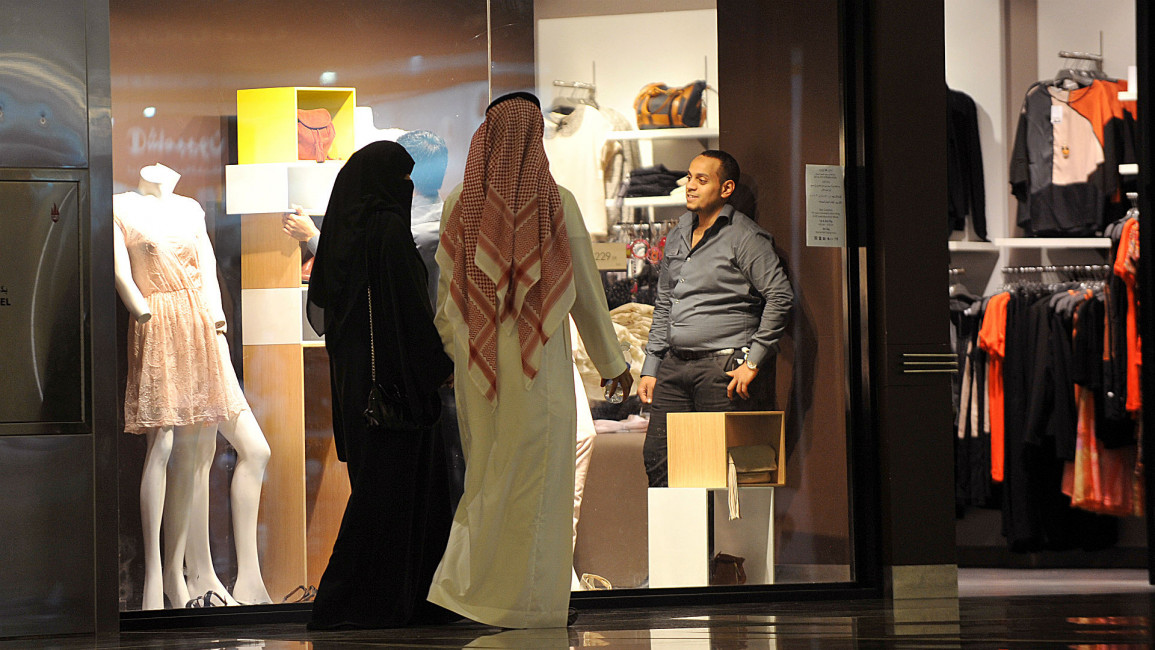Saudi Arabia tightens security after alert
Shopping malls in Saudi Arabia have tightened security after the government warned over possible attacks.
At the Kingdom Centre Mall in central Riyadh, security guards inspected bags and scanned visitors with metal detectors before they entered, an AFP reporter witnessed.
Inside the older Akaria Mall and office complex in the city centre, guards also stopped visitors and searched their belongings.
The new measures follow an interior ministry warning on Monday over a possible attack against a shopping centre or oil facilities.
A ministry spokesman said there was "an alert" involving a mall or oil installations but did not provide further details.
State-owned Saudi Aramco, the world's largest oil company in terms of crude production and exports based in the east of the kingdom, says it had a policy of not commenting on matters concerning security.
Fears about possible revenge attacks by militants in the world's largest oil exporter have been raised since September when Saudi Arabia began taking part in US-led air strikes against Islamic State group in Syria.
In March, Interior Minister Prince Mohammed bin Nayef ordered that security be tightened nationwide after the kingdom launched air strikes against rebels in neighbouring Yemen.
On April 8, two Saudi policemen were killed when their patrol came under fire from unknown assailants in Riyadh less than two weeks after two others were wounded in a similar attack.
Between 2003 and 2007 Al-Qaeda waged a campaign of bombings and shootings that killed expatriate workers along with Saudi security officers.
In a fresh spate of attacks, Westerners have been targeted in Saudi Arabia four times since October.
Authorities arrested three Saudis, suspected of shooting a Danish national, who were said to have acted "in support of" IS.
Another incident saw a Canadian stabbed and wounded at a shopping mall in Dhahran, where Saudi Aramco is based.
The United States closed its Riyadh embassy for several days in early March because of unspecified security concerns.
Riyadh has been carrying out air strikes against Houthi rebels in neighbouring Yemen since March 26 in a conflict in which nine members of its security forces have been killed by cross-border fire.
On Saturday, guards at the gates of a central Riyadh shopping mall stopped single men from entering and searched the bags of female shoppers, Reuters reporters said.
In 2006, four al Qaeda militants breached the gates of Saudi Aramco's Abqaiq plant but did not manage to cause significant damage before being killed in a shootout with security guards, Saudi authorities said.
However, a US diplomatic cable from the same year released by WikiLeaks quoted the then-US ambassador as saying he understood that "the attack on Abqaiq had been much closer to succeeding than generally acknowledged".
At the time, Abqaiq processed 70 percent of Saudi crude.
Subsequent US cables documented American assistance to the Saudis in strengthening the security of energy infrastructure, including the establishment of a dedicated, 40,000-strong Facilities Protection Force.



